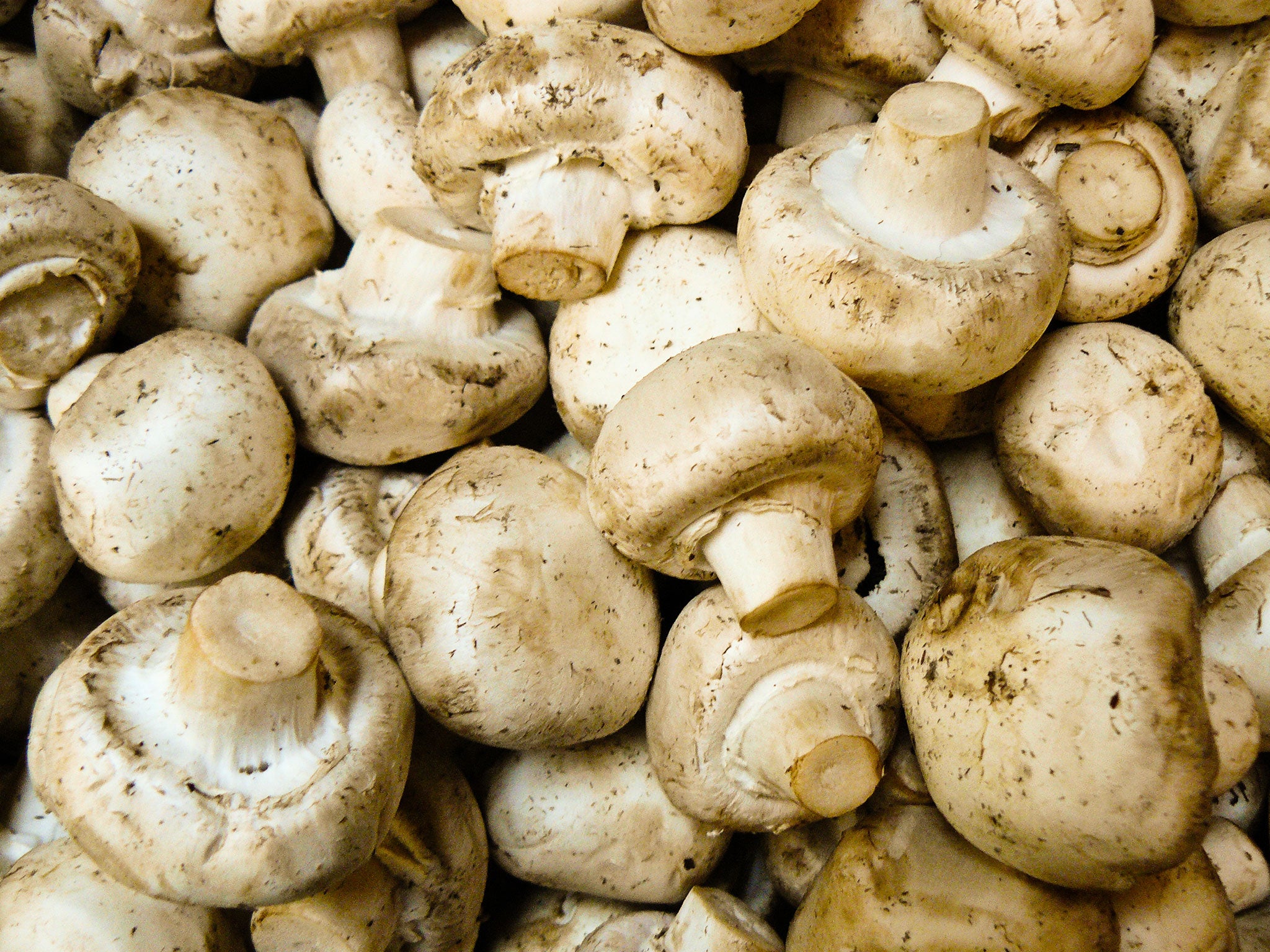Mushrooms that don't turn brown could soon be on sale thanks to loophole in GM food regulations
The non-browning mushrooms need further inspection before they end up in your dinner - but they've already escaped USDA regulations

Your support helps us to tell the story
From reproductive rights to climate change to Big Tech, The Independent is on the ground when the story is developing. Whether it's investigating the financials of Elon Musk's pro-Trump PAC or producing our latest documentary, 'The A Word', which shines a light on the American women fighting for reproductive rights, we know how important it is to parse out the facts from the messaging.
At such a critical moment in US history, we need reporters on the ground. Your donation allows us to keep sending journalists to speak to both sides of the story.
The Independent is trusted by Americans across the entire political spectrum. And unlike many other quality news outlets, we choose not to lock Americans out of our reporting and analysis with paywalls. We believe quality journalism should be available to everyone, paid for by those who can afford it.
Your support makes all the difference.A unique mushroom which doesn't go brown when sliced has become one of the first gene-edited crops to be approved by the US agricultural regulator, thanks to a loophole.
A strain of Agaricus bisporus, commonly known as the button mushroom, was 'edited' with the revolutionary CRISPR/Cas9 technique, where scientists use molecular 'scissors' to cut, move and replace pieces of DNA.
Using the technique, Penn State University's Dr. Yinong Yang managed to remove a small piece of one gene from the mushroom which causes it to go brown after being cut.
The edited mushrooms can stay on shelves for longer and don't need to be handled as delicately as regular strains, reducing waste and saving money for consumers, farmers and retailers.
Crops which have been genetically engineered using tradtional techniques need to be approved and tested by the US Department of Agriculture (USDA), to make sure they don't pose a threat to consumers or the environment in which they grow.
However, since gene editing only removes pieces of genes, and doesn't introduce any foreign DNA, bacteria or viruses to the organism, the mushroom escaped the USDA's regulatory processes.
In a letter to Dr. Yang, the USDA's Animal and Plant Health Inspection Service (APHIS) said: "APHIS has concluded that your CRISPR/Cas9-edited white button mushrooms as described in your letter do not contain any introduced genetic material."
"Therefore, consistent with previous responses to similar letters of inquiry, APHIS does not consider CRISPR/Cas9-edited white button mushrooms...to be regulated."
As Popular Science notes, other gene-edited crops have made use of this loophole before, but they've been created with other techniques. Dr. Yang's mushrooms are the first-ever CRISPR/Cas9-edited crop to escape regulation.
However, don't expect to see the non-browning mushrooms on supermarket shelves any time soon, because they could yet be hit with regulations by the US Environmental Protection Agency (EPA) or the Food and Drug Administration (FDA).
According to ScienceNews, Dr. Yang said he would be seeking input from all the relevant agencies before taking his discovery forward.
Speaking to the publication, he said: "We're not just going to start marketing these mushrooms without FDA approval."
Join our commenting forum
Join thought-provoking conversations, follow other Independent readers and see their replies
Comments